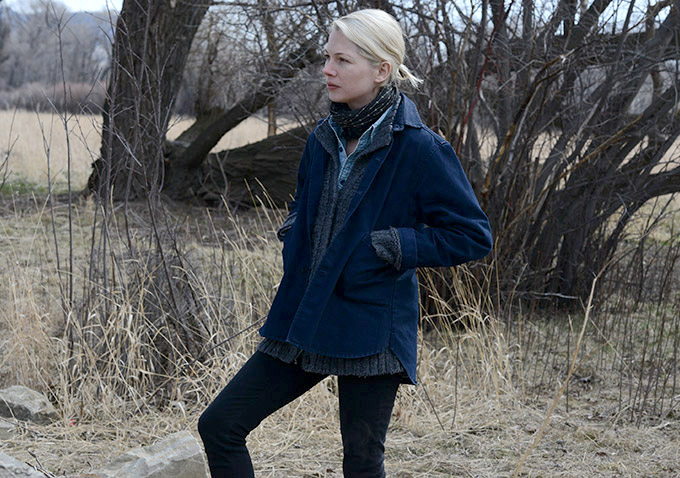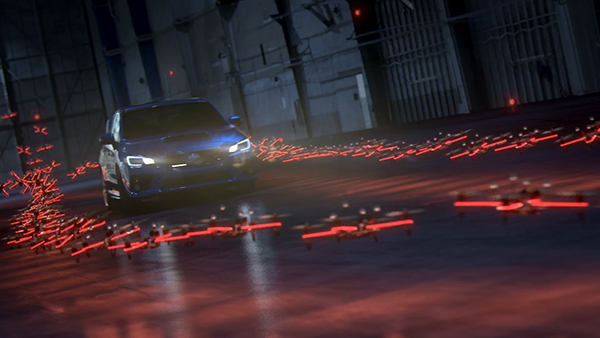
By LESLIE FELPERIN
Laura Dern, Michelle Williams and Kristen Stewart star in Kelly Reichardt’s latest study in northerly melancholy.
After her comparatively pacey last feature, the eco-themed thriller Night Moves, indie auteur Kelly Reichardt returns to a more typically low and slow register with the elegantly wrought Certain Women. Although her screenplay is adapted from short stories by Maile Meloy, and set in and around pokey-cozy Livingston, Montana, instead of the Pacific Northwest stomping grounds she’s favored in the past, Reichardt successfully makes the material and setting her own. Her trademark attention to landscape, to the bonds between people and animals and to how the human face can reveal so much when at rest are all present and correct.
Yet while there’s no doubt this is the work of a filmmaker entirely in command of her craft, there’s something a trifle academic and dry about the whole exercise, and slightly lacking in narrative cohesion given the nature of its origins. Unlike, say Robert Altman’s Short Cuts or other films adapted from collections, this feels like three discrete works laid alongside one another, like pictures in a gallery, not a triptych.
“Her trademark attention to landscape, to the bonds between people and animals and to how the human face can reveal so much when at rest are all present and correct.”
Still, Certain Women features Reichardt’s starriest cast, with not just her muse Michelle Williams on board but also Laura Dern and Kristen Stewart, as well as outstanding discovery Lily Gladstone. Together, these women are certain to hold the attention of viewers at further festivals and in specialist distribution.
The opening tale trips lightly along on dainty feet. After an adulterous afternoon tryst with her married lover Ryan (James Le Gros), local Livingston lawyer Laura Wells (Dern) meets with her client, a carpenter named Fuller (Jared Harris). Fuller has hired Laura to help him get compensation for a workplace accident, a case he hasn’t any chance of winning. Laura has been trying to tell Fuller this for weeks, but he only seems to accept defeat when a male lawyer in a neighboring town assures him he’ll get no “tort time.” Even so, he still insists on trying one last desperate measure to prove he’s been done wrong, and Laura wearily comes to his rescue.
In the second, spikier chapter, Ryan turns out to be married to Gina (Williams), a hard, humorless woman with a smile like a drawer full of tiny knives, who has bought a plot of land in the area and plans to build a house there. Accompanied by their sulky teenage daughter (Sara Rodier), Gina and Ryan visit Albert (the great Rene Auberjonois), a fragile old man whose mind seems to be fading, in the hopes of talking him into selling them some native sandstone that’s been heaped in front of his house for years.
“…the visuals speak volumes…shot on 16mm film, the graininess and deep focus of the cinematography suggest a living landscape that’s constantly in shimmer.”
The best comes last with an exquisite tale of inchoate longing and miscommunication. An unnamed ranch hand (luminous newcomer Gladstone) spends her days caring for horses on a remote ranch, not another single human soul in sight. Even so, she has the horses for companionship, as well as a boisterous, scene-stealing Corgi cross. (As in other Reichardt films, the dogs have strong supporting roles here, and this one is also dedicated to the director’s longtime canine companion, the co-star of Wendy and Lucy.)
Seeing cars gathering late one night at the local school, the ranch hand investigates and finds it’s a class on education law being taught to the school teachers by recent law-school graduate Elizabeth (Stewart). She starts auditing Elizabeth’s classes each week, and they become friends of sorts, companionably sharing meals before Elizabeth makes the long drive back to Livingston. Barely able to articulate her feelings, the ranch hand seemingly develops a kind of girlish crush on the teacher, but her feelings can only find expression in longing looks, and the closest she gets to Elizabeth physically is a shared ride on a horse.
If the characters here are often sparing with their words, or even withholding, the visuals speak volumes. Shot by Reichardt’s most steadfast collaborator, d.p. Christopher Blauvelt on 16mm film, the graininess and deep focus of the cinematography suggest a living landscape that’s constantly in shimmer. The sounds we hear might be the babbling of a nearby river, the murmur of Jeff Grace’s understated soundtrack or the rustling of some invisible book’s pages. Meanwhile, characters are often seen through glass or reflected in mirrors, underscoring the lack of direct connection, the oblique angles from which they observe each other. It’s no accident that the rawest emotional moment in Certain Women is when the ranch hand and Elizabeth look directly into each other’s eyes in a car park, finally truly seeing each other for the first time.


